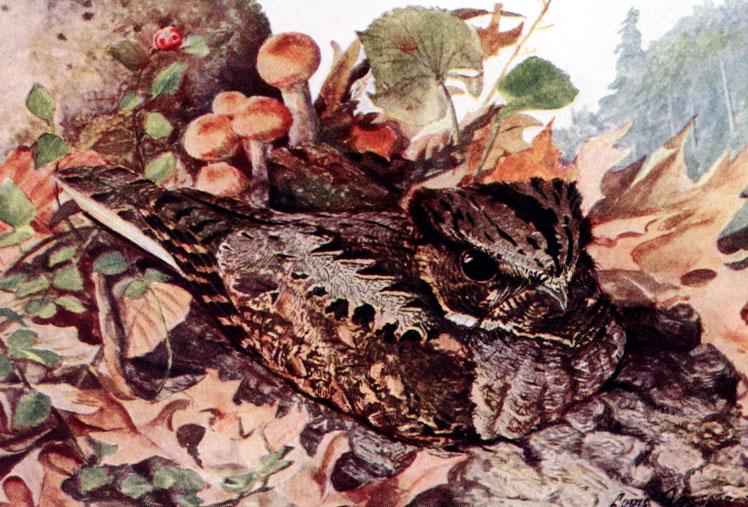Even before the internet, her words became a popular cultural mantra, repeated frequently in conversations and print and even found on bumper stickers across the nation. Many people took Ms. Herbert’s maxim to heart, going out of their way, for example, to help a stranger in need.
To practice random acts of kindness needs little explanation, but what exactly did Ms. Herbert intend by “senseless acts of beauty?” Did she select beauty because it loosely rhymes with cruelty? What constitutes a senseless act of beauty?
Over the years, I have occasionally pondered the meaning of those words. And then, on the evening of April 10, just a few minutes past 8 p.m., the universe kindly delivered an answer.
It was dusk, and I had just stepped onto my front porch when I heard it, clear and vibrant: the song of a whippoorwill coming from the woods near a neighbor’s house. I had last delighted in that beautiful and, to my ear, mysterious triad of musical notes more than 50 years ago, when I was a boy in a small town in North Carolina, and for much of my adult life, I’ve wondered whether I would ever again hear a whippoorwill’s call.
And now here it was: Three sweet, liquid notes repeated again and again for about 30 seconds. I don’t keep a bucket list, but if I did, hearing a whippoorwill one more time would have made the top 10.
Senseless acts of beauty, then, depend on both a conscious participant and another person, creature, or object. The 3-year-old playing with a doll while warbling the words of “Row, Row, Row Your Boat” is practicing a senseless act of singing, but the beauty of that moment melts the heart of her mother making supper in the kitchen. The women who are seemingly unaware of their beauty—whether models or movie stars or those whom we pass on a sidewalk—are often the most striking of all, precisely because of this lack of awareness.
It also occurred to me that, so often, a random act of kindness and a senseless act of beauty are one and the same. In August 1975, too broke to buy a plane ticket and too stubborn to ask anyone for money, I hitched from Boston to Winston-Salem, North Carolina, to see my mother. Almost 50 years later, I recall three of the rides I caught: a woman who had just broken up with her lover, a young couple who carried me a hundred miles through Virginia in the bed of their pickup, and the man who insisted on driving me to my mother’s doorstep. At the time, I was too involved in my own troubles to pay attention, but now, looking back, I see the kindness and beauty in these people and in my mother, who insisted on paying for a plane ticket back to Boston.
It is this collusion of beauty and kindness that is the real power behind Ms. Herbert’s profound sentence. When you pay for a coffee for the stranger in line behind you at the cafe, you’re not only practicing kindness, you’re creating the beauty of a smile and a warm heart.
As for my whippoorwill, I’ve listened every evening but, as of yet, have heard no more songs.
No matter. What counts—what is most glorious—is that I got to hear that melody at all.







